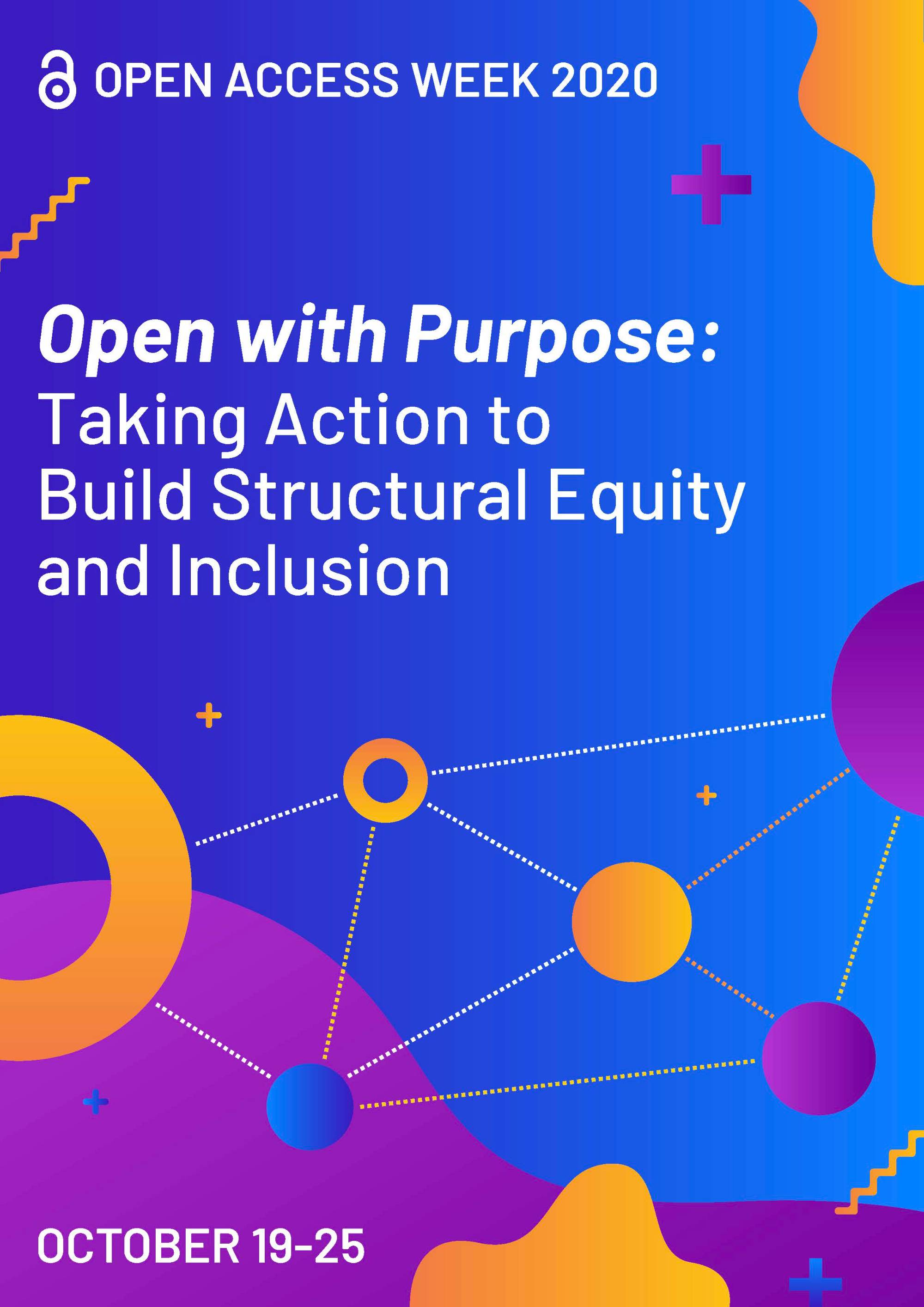Open with Purpose: Open Access Week 2020
Permanent link for Open With Purpose: Can scholars challenge global inequity by rethinking how we evaluate scholarly publications? on October 23, 2020
Yesterday, our Open Access Week blog post reflected on a growth area for the GVSU Libraries, an opportunity for us to do more to build an inclusive and equitable system of scholarly publishing. Today, we offer a similar reflection which applies to all scholars and our institutions, especially in the Global North. Unless we examine and change the ways we evaluate scholarly publications and the research of individual scholars, Open Access publishing will continue to exclude much of the world.
The rise of digital publishing and Open Access is an exciting opportunity for removing barriers to global participation: anyone can publish an Open Access journal, and scholars around the world can read or submit work to that journal. Yet this abundance can create uncertainty for scholars facing a vast and growing number of unfamiliar journals, a few of which are deceptive or exploit authors. In the same way that email is a fantastic communication tool but makes phishing and similar scams possible, some bad actors exploit Open Access publishing. Unfortunately, some of the academic community’s responses to the problem of unfamiliar or poor-quality journals have strengthened barriers to global participation in scholarship.
A common response is the use of watchlists to identify and avoid questionable publications, but these are inherently subjective, with a high risk of harm to journals outside the major commercial publishing world. When one of the earliest influential watchlists flagged a legitimate African publisher as “possibly predatory,” authors and editors began withdrawing. Despite appeals, the U.S.-based person who ran the list refused to unflag the publisher, severely harming their ability to share African scholarship with a global audience. This particular watchlist is gone, but its replacements carry similar flaws as highlighted in a recent research article.
Publishing efforts around the world can likewise be excluded when scholars and our communities judge the quality and value of research based on citation metrics like the Journal Impact Factor or indexing in commercial databases like SCOPUS. Our reliance on these tools as a sign of quality ignores the reality that they disproportionately center publishers and publications from North America and Western Europe. As the scholar and publishing leader Arriana Beccerril-Grande described in a 2019 keynote address at the Library Publishing Forum, this underrepresentation limits the reach of Global South scholarship and makes it easy for researchers to incorrectly view all unrepresented journals as low-quality or suspicious.
The good news is that scholars at GVSU and worldwide have the tools we need to start changing and challenging these biased systems. Instead of relying on watchlists to avoid problematic publications, use tools like Think Check Submit and the Libraries’ Journal Quality Indicators to guide a critical, informed review of a potential journal. Or consult with a liaison librarian; after all, evaluating information sources is a core professional skill for librarians! Meanwhile, when you and your colleagues are evaluating someone else’s research, consider the principles in the San Francisco Declaration on Research Assessment, which encourage assessing research on its own merits, not via flawed surrogates for quality. When we and our academic communities move away from these biased tools, we are dismantling barriers to support genuinely global participation in scholarly and creative practice.

